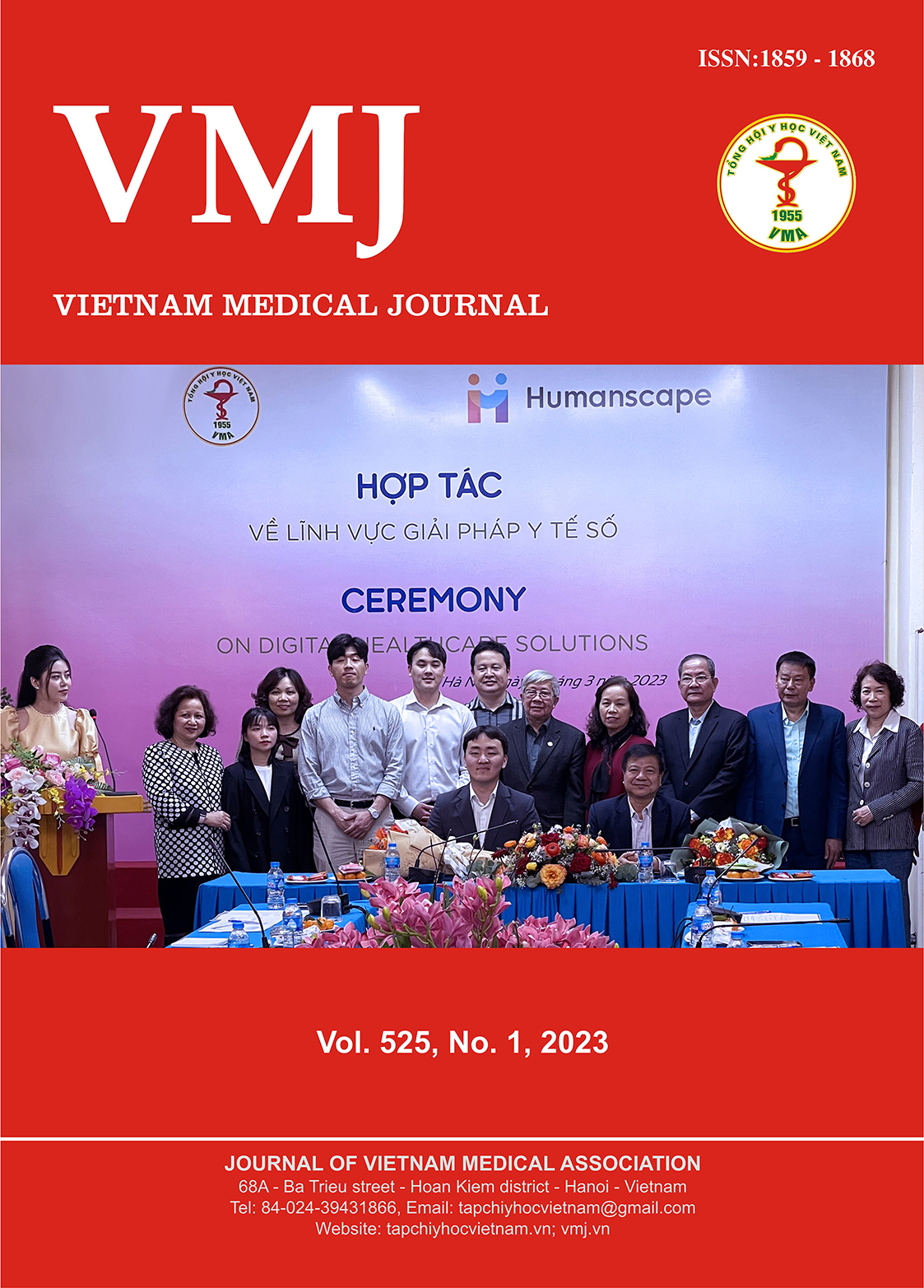ANTIRETROVIRAL MEDICATION ADHERENCE AMONG PATIENTS WITH HIV/AIDS AT A COMMUNITY MEDICAL CENTER IN VIETNAM
Nội dung chính của bài viết
Tóm tắt
Introduction: Non-adherence to antiretroviral (ARV) medications is a common issue worldwide and in Vietnam. Purpose: To assess patients’ adherence to ARV medications and to determine factors associated with adherence among patients with HIV/AIDS in Ho Chi Minh City (HCMC). Methods: A cross-sectional study was conducted on 360 outpatients being on ARV therapy at a community medical center in HCMC from 15th March to 20th June in 2020. We invited patients aged 18 or above who have been on ARV treatment for at least 6 months to participate in the study. Data was collected through patient interviews and medical records. Medication adherence was assessed regarding timing of medication administration and dosing adherence using Morisky Medication Adherence Scale-8-item Questionnaire (MMAS-8). Factors associated with optimal adherence were identified by multivariable logistic regression model. Results: The median age of 360 patients was 38 (33 - 43), 72.5% were male. The proportion of optimally adherent patients was 56.4%. Factors associated with better adherence were increased age, stronger belief in medications, and adherence aids use. Factors associated with poorer adherence were alcohol consumption in the previous 30 days, concerns about side effects, twice-daily ARV therapy, and undesirable effects in the previous 3 months. Conclusion: Optimal adherence to ARV medications among HIV/AIDS patients was relatively limited. To improve medication adherence, health workers may need to simplify ARV regimens and counsel patients more intensively (especially for the younger) about the effectiveness of ARV medications, alcohol intake reduction and the use of adherence aids.
Chi tiết bài viết
Từ khóa
HIV/AIDS, medication adherence, ARV, MMAS, BMQ
Tài liệu tham khảo
2. Biset Ayalew M. Mortality and its predictors among HIV infected patients taking antiretroviral treatment in ethiopia: a systematic review. AIDS research and treatment. 2017;2017.
3. Cardoso TS, Costa JdO, Reis EA, Silveira MR, Bonolo PdF, Santos SFd, et al. Which antiretroviral regimen is associated with higher adherence in Brazil? A comparison of single, multi, and dolutegravir-based regimens. Cadernos de saude publica. 2019;35:e00115518.
4. Chesney MA. Factors affecting adherence to antiretroviral therapy. Clinical Infectious Diseases. 2000;30(Supplement_2):S171-S176.
5. Do HM, Dunne MP, Kato M, Pham CV, Nguyen KV. Factors associated with suboptimal adherence to antiretroviral therapy in Viet Nam: a cross-sectional study using audio computer-assisted self-interview (ACASI). BMC Infectious Diseases. 2013;13(1):154.
6. Fall E, Gauchet A, Izaute M, Horne R, Chakroun N. Validation of the French version of the Beliefs about Medicines Questionnaire (BMQ) among diabetes and HIV patients. Revue Européenne de Psychologie Appliquée/European Review of Applied Psychology. 2014;64(6):335-343.
7. Gill CJ, Sabin LL, Hamer DH, Keyi X, Jianbo Z, Li T, et al. Importance of dose timing to achieving undetectable viral loads. AIDS and Behavior. 2010;14(4):785-793.
8. Ministry of Health in Vietnam (2020), The results and main missions for HIV/AIDS prevention in 2020.
9. Heestermans T, Browne JL, Aitken SC, Vervoort SC, Klipstein-Grobusch K. Determinants of adherence to antiretroviral therapy among HIV-positive adults in sub-Saharan Africa: a systematic review. BMJ global health. 2016;1(4).
10. Hendershot CS, Stoner SA, Pantalone DW, Simoni JM. Alcohol use and antiretroviral adherence: review and meta-analysis. Journal of acquired immune deficiency syndromes (1999). 2009;52(2):180.
11. Kamal S, Bugnon O, Cavassini M, Schneider M. HIV‐infected patients' beliefs about their chronic co‐treatments in comparison with their combined antiretroviral therapy. HIV medicine. 2018;19(1):49-58.
12. Mai HT, Le GM, Tran BX, Do HN, Latkin CA, Nguyen LT, et al. Adherence to antiretroviral therapy among HIV/AIDS patients in the context of early treatment initiation in Vietnam. Patient preference and adherence. 2018;12:2131.
13. Nachega JB, Parienti J-J, Uthman OA, Gross R, Dowdy DW, Sax PE, et al. Lower pill burden and once-daily antiretroviral treatment regimens for HIV infection: a meta-analysis of randomized controlled trials. Clinical infectious diseases. 2014;58(9):1297-1307.
14. Nguyen TH, Nguyen T, "Translation and Cross-Cultural Adaptation of the Brief Illness Perception Questionnaire, the Beliefs About Medicines Questionnaire and the Morisky Medication Adherence Scale Into Vietnamese," presented at the The 31 st International Conference on Pharmacoepidemiology & Therapeutic Risk Management (ICPE), 2015.
15. Ortego C, Huedo-Medina TB, Llorca J, Sevilla L, Santos P, Rodríguez E, et al. Adherence to highly active antiretroviral therapy (HAART): a meta-analysis. AIDS and Behavior. 2011;15(7):1381-1396.
16. Peyre M, Gauchet A, Roustit M, Leclercq P, Epaulard O. Influence of the first consultation on adherence to antiretroviral therapy for HIV-infected patients. The open AIDS journal. 2016;10:182.
17. Tran BX, Nguyen LT, Nguyen NH, Hoang QV. Determinants of antiretroviral treatment adherence among HIV/AIDS patients: a multisite study. Global health action. 2013;6(1):19570.
18. Van Wijngaerden E, De Saar V, De Graeve V, Vandamme A-M, Van Vaerenbergh K, Bobbaers H, et al. Nonadherence to highly active antiretroviral therapy: clinically relevant patient categorization based on electronic event monitoring. AIDS research and human retroviruses. 2002;18(5):327-330.


